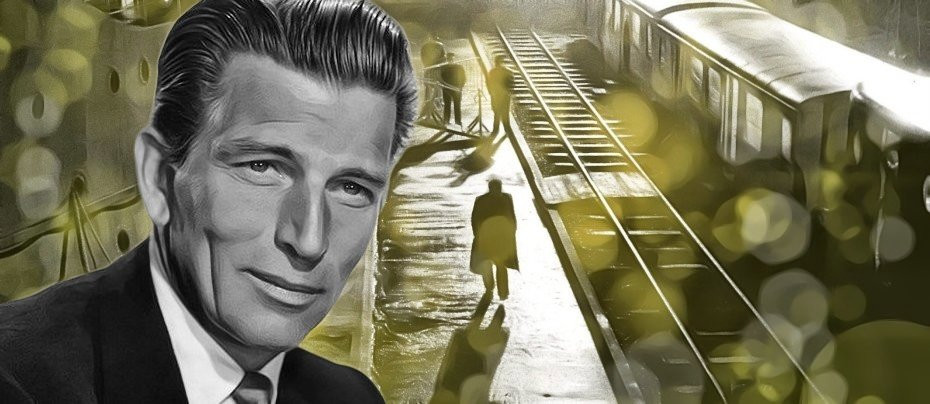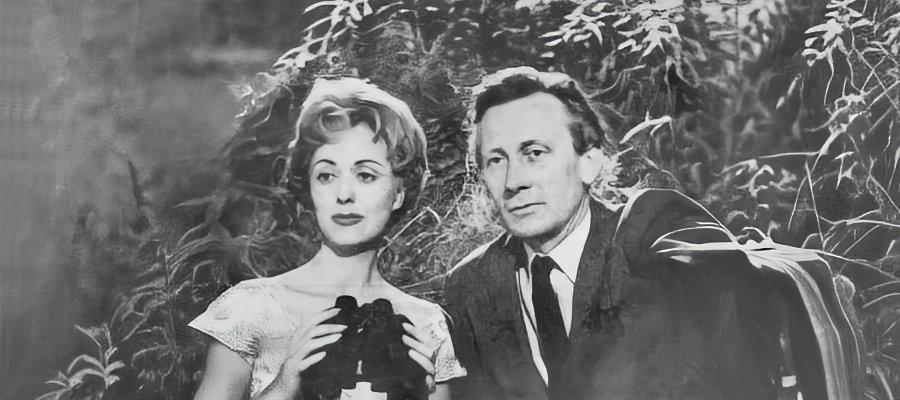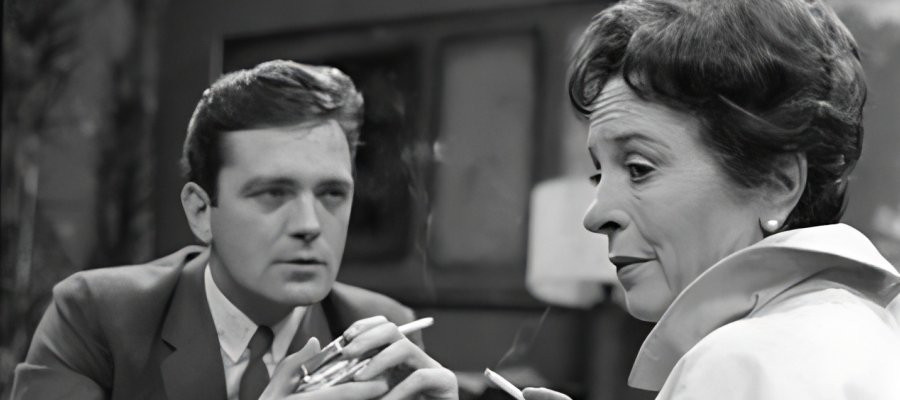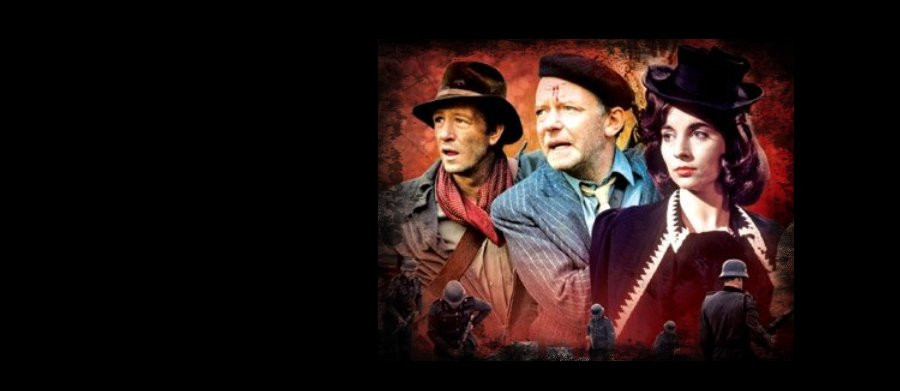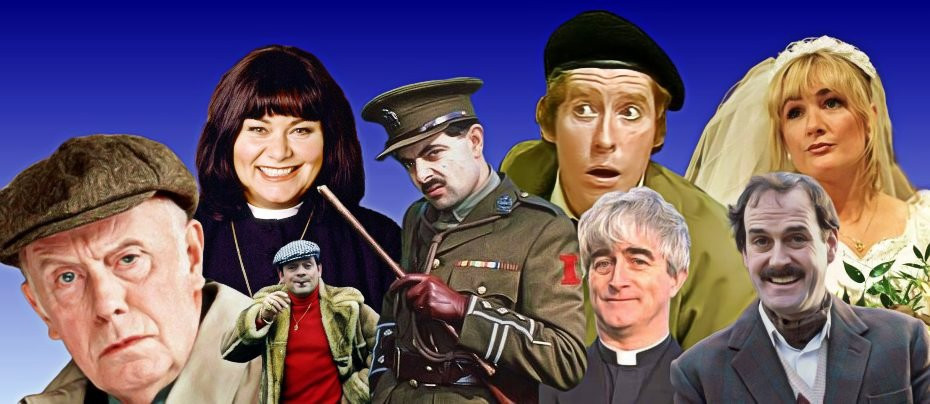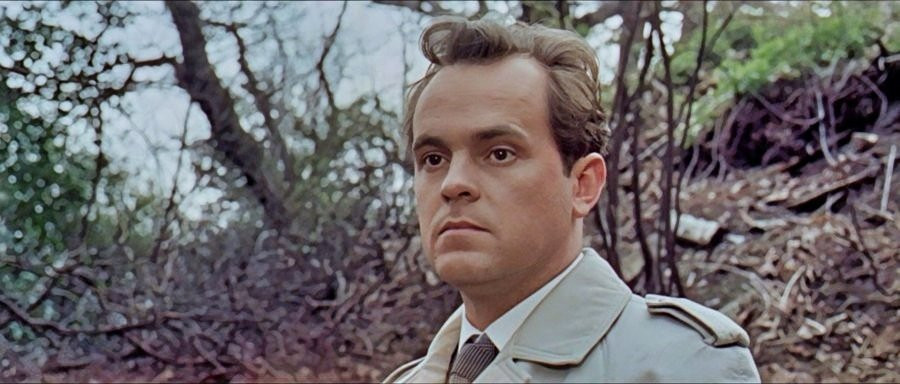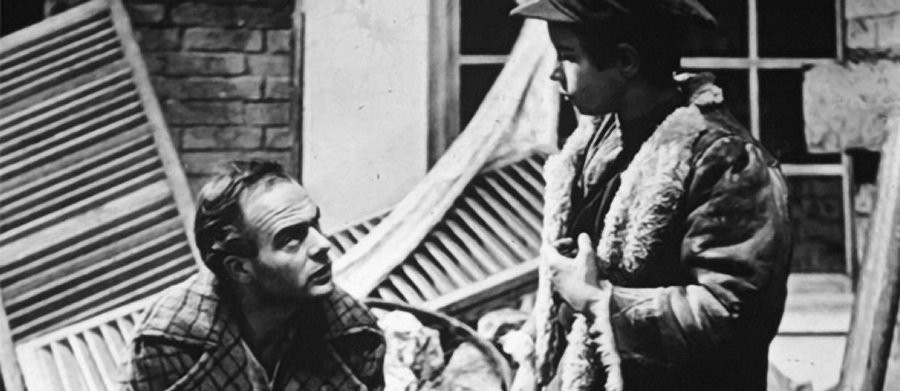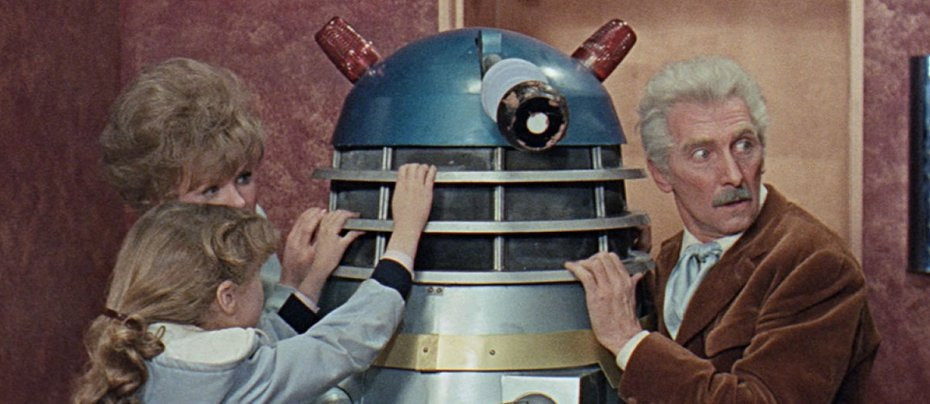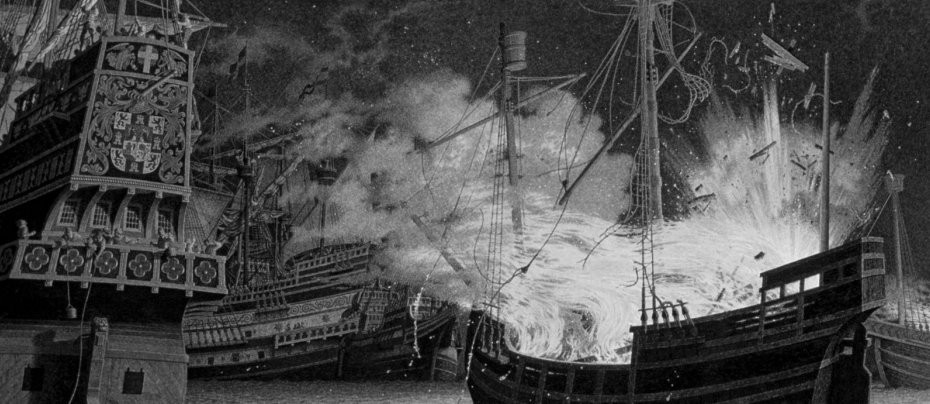The War Games
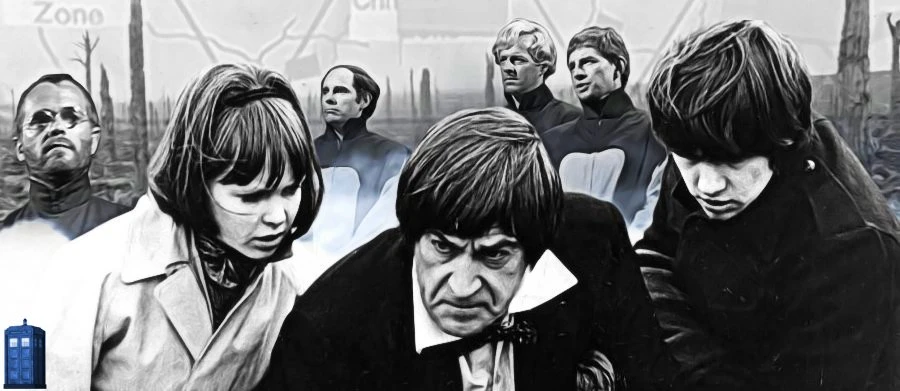
In 1969, Doctor Who reached a milestone. Its fiftieth serial, The War Games, was the end of an era in more ways than one. The end of the sixth season, the last story of the 1960s, the last filmed in black-and-white, and the last regular appearance of Patrick Troughton as the Doctor. What's more, it was the end of Doctor Who's original era of voyages in space and time, signalling a change in format for the 1970s, and reworked the concept of the series by finally providing a backstory for the Doctor.
Not that anyone watching would have realised that's where things were going when the serial started. An epic ten-part story that ran from April to June, The War Games was the longest serial in the series save for the 1965-6 story The Daleks' Master Plan, and even that was essentially several stories stitched together. By some miracle, the entire story still exists in the archives and is thus available to watch today. The length of the serial was a choice of necessity, after two stories of more standard length had fallen through and time was rapidly running out to get the season finished. The War Games provides a single long narrative, albeit with many unexpected twists and turns along the way. Remarkably it doesn't outstay its welcome, although there's inevitably some considerable padding in the middle. Much of the success of the story is down to the constantly changing locations and sudden revelations of the plot, which become more and more complex as it goes along.
At the beginning, though, it appears as if Doctor Who has returned to its historical roots for the first time in years. After a bombastic title card featuring gunshots and explosions, the story starts when the TARDIS materialises on the battlefield of No Man's Land. The First World War was a powerfully bleak choice for a setting, rather more serious than anything Doctor Who had done in recent years. The battlefield and parts of the trench sequences were filmed in and around the municipal tip at Sheepcote Valley in Brighton, where material such as barbed wire was still in place from the filming of the musical Oh! What a Lovely War the previous year (just released when The War Games was filming). Troughton was not happy about this, and reportedly said that if he saw a rat he'd quit on the spot. It's hard to deny just how effective it is, though, seeing our motley crew of time travellers crawling through the mire of No Man's Land. This story features one of the classic TARDIS teams, the Doctor accompanied by his faithful right-hand man Jamie Macrimmon (Frazer Hines) and young genius Zoe Herriot (Wendy Padbury). With one companion from the 1740s and another from the far-off future of the 21st century, the characters themselves represented a mix of historical and sci-fi characters.
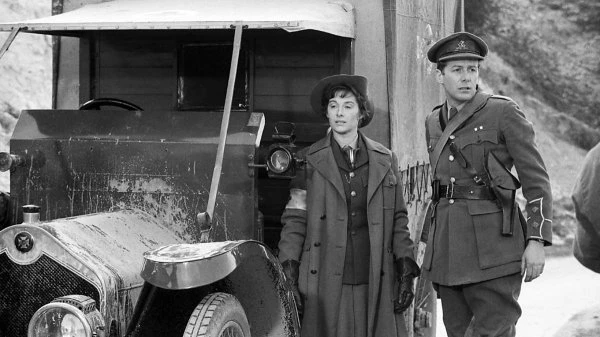
The serial was written by Terrence Dicks and Malcolm Hulke, their first and second writing credits for the series respectively (although Dicks has already worked as story editor and had several uncredited contributions to the season's serials). Both would go on to be major names in the series, shaping the colour era. The War Games is a brilliant example of their talents, mixing pulpy thrills with imaginative sci-fi concepts, while solving the problem of a sudden dearth of usable scripts and ten weeks of broadcast to fill up. The Doctor and his companions are immediately under fire, helpfully rescued by WVR Lady Jennifer (Jane Sherwin, wife of the series' producer Derek Sherwin) and Lt. Carstairs (David Savile, Warship, Kinsey). This dreadfully posh pair become pseudo-companions for the story, and have a rather sweetly chaste romantic chemistry. However, three civilians inexplicably yomping around No Man's Land doesn't look good, and the travellers are quickly arrested, pulled up before the sinister General Smythe. Very much modelled after the "lions led by donkeys" view of the command level at WWI, Smythe doesn't seem to care what the travellers have to say for themselves and clearly has it in for them. The Doctor and Zoe are tried for espionage and Jamie for desertion.
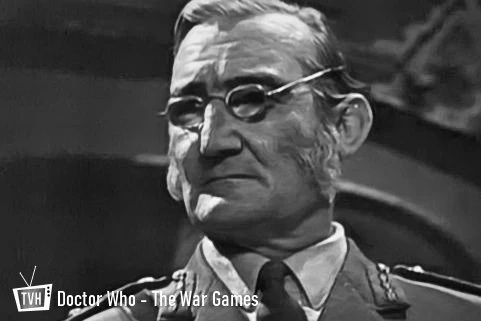
Even as early as the first episode, it's clear something is up. Smythe seems to have some kind of hypnotic control over his staff and vanishes from his offices without explanation. There's unexplained technology at the trenches, while Lady Jennifer and Carstairs can't remember how long they've been at the front lines. (Naturally, they haven't told anyone about this – stiff upper lip and all that.) The Doctor's instincts don't fail him, but his attempts at questioning only get him in more trouble. He's sentenced to execution by firing squad, leading to a hell of a gripping cliff-hanger. And all that's just in the first episode.
As events move on, things become even more mysterious. A strange mist surrounds the battlefield, and people seem to vanish when they enter it (possibly inspired by wartime folklore of the Angel of Mons, which similarly was said to carry away troops through a miraculous haze). Jamie finds himself imprisoned with one of his contemporaries, a Redcoat soldier. Most intriguingly of all, Smythe exits his offices via a metallic cabinet that appears and disappears with a very familiar sound. The Doctor engages in his standard habit of capture-escape-capture (there's a lot of this to pad things out) and manages to pass himself off as an examiner from the War Office through sheer bluster. He manages to get as far as getting them into Jamie's cell before the ruse fails (although there's a wonderful moment where Zoe just clonks the overseeing officer over the head with a vase of flowers). Fortunately, Lady Jennifer and Carstairs have slowly become aware of the discrepancy in events and help the travellers escape again. As their commandeered ambulance crosses the perimeter mist, they find themselves under attack by a legion of Roman soldiers in the second astonishing cliff-hanger.
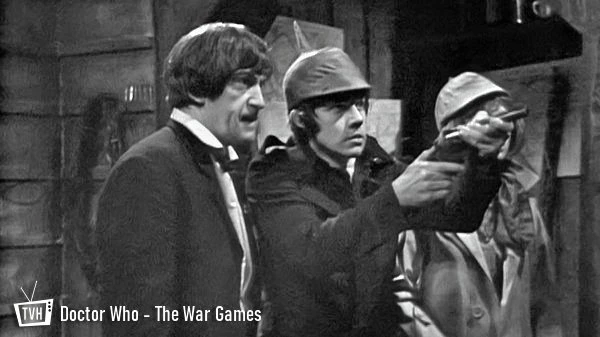
This strange confluence of eras is a clue to the nature of the story. It gradually becomes clear that there are various war zones, each separated by a force field that takes the form of the mist, and each featuring soldiers taken from different wars throughout human history. There's an American Civil War zone, a Mexican Civil War zone, characters appear from the 19th century British army and more. In the middle of the war zones is a control centre, an op art extravaganza with swirling wall patterns, computer banks and bizarre technology. The war zones are part of a great experiment, run by beings that look human but are explicitly aliens – indeed, they are never named, only ever referred to as "the Aliens" in dialogue. They've created this entire operation on some nameless planet and abducted soldiers from all throughout history, pitting them against each other in an attempt to create the greatest army in the universe. It's all part of a plan of galactic conquest – although why a race of beings with access to mind-wiping technology and neutron bombs is trying to take over the universe with a bunch of rowdy Mexicans is anyone's guess.
It's an ingenious solution for a cash-strapped production made in a hurry. One thing the BBC has in spades is historical drama material, with racks of period costume and storerooms full of props. Utilising these the production team could create this huge and sprawling story covering multiple time zones, juxtaposing the historical situations of the war zones with the futuristic stylings of the control centre. The story is a strong polemic against war, with the focus on WWI notable as that most utterly pointless and brutal of conflicts. Taking the historical genre and mixing it with the very sixties concept of brainwashing, while using it to tell stories of soldiers fighting the process and forming a resistance is a brilliant notion.
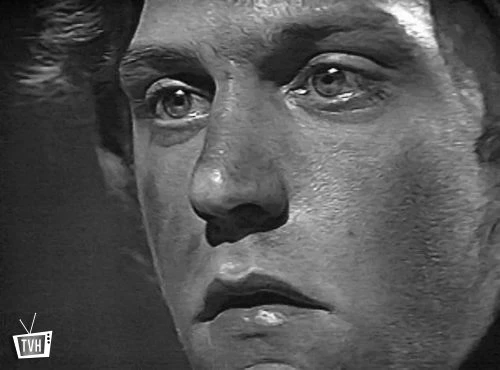
The serial features an awful lot of back-and-forth between the war zones and the control centre, the collision of different visuals making for a heady experience. While the travellers and their new allies find themselves under attack from various armies, the script never takes sides – it's the Aliens against everyone. Even the Imperial German Army, an easy target as a set of baddies, is portrayed sympathetically. The various zones feature an array of characters, with some notable faces among them. David Troughton, son of the Doctor himself, makes his Doctor Who debut as young British Private Moor – he'd go on to star in The Curse of Peladon opposite Jon Pertwee, "Midnight" opposite David Tennant and even appear as a version of his father's character alongside Tom Baker in the audio series Serpent Crest.
Hubert Rees plays the wonderfully fuddy-duddy and easily influenced Captain Ransom ("Not a lot of women take an interest in the problems of supply.") He'd appeared the previous year in the serial Fury from the Deep and would be back alongside Tom Baker in The Seeds of Doom. French soldier Du Pont was played by Peter Craze, the younger brother of Michael Craze who had played companion Ben. He'd appeared opposite William Hartnell in The Space Museum and would appear with Tom Baker in Nightmare of Eden. Two of the American soldiers are played by future EastEnders regulars: Rudolph Walker and Lesley Schofield (later to appear opposite Tom Baker in The Face of Evil). They manage the American accents better than most of the rum attempts in those scenes.
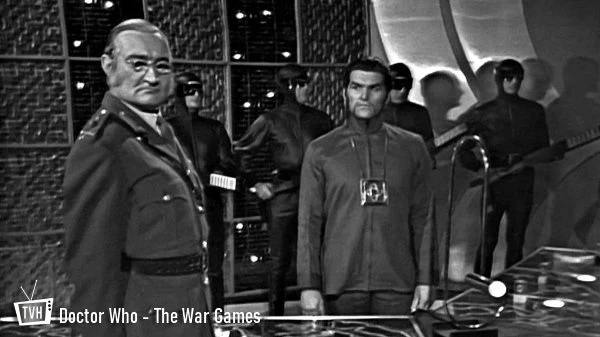
The Aliens are a peculiar bunch, the control centre acting as a sort of university for aspiring galactic conquerors who observe the brainwashing of the soldiers. None of them seem to have names, either, with the experiments overseen by a Chief Scientist (Vernon Dobcheff) and the rule of law under the aegis of the Security Chief (James Bree, later to appear on the series again opposite Tom Baker in Full Circle), a vindictive, nasal sort who is in permanent competition with the overseer of the plan, the War Chief. This is all a little confusing, especially when the War Lord turns up. The Aliens' overall authority, the War Lord is a softly-spoken maniac played by the excellent Philip Madoc – seen previously in Daleks: Invasion Earth 2150 AD opposite Peter Cushing, earlier in the season opposite Troughton in The Krotons and later with Tom Baker in The Brain of Morbius and The Power of Kroll, but forever best known as the German officer in Dad's Army (of the classic "Don't tell him Pike!" scene).
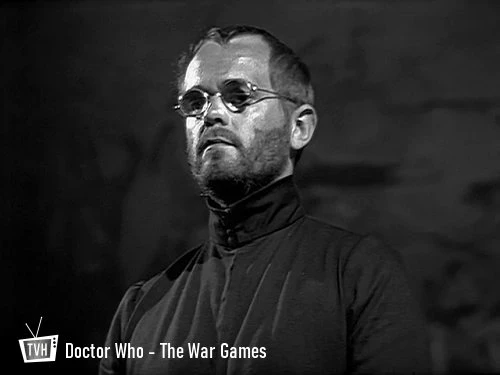
While the War Lord is in charge, it's the War Chief who proves the most important going forward. Edward Brayshaw had previously appeared opposite William Hartnell in the French Revolution story The Reign of Terror, but will be best remembered as Mr. Meaker from Rentaghost. A power-hungry opportunist, the War Chief is an interloper from outside, acting as an advisor to the Aliens in their plans and supplying their time machines. He is revealed, almost in passing, to be from a people called the Time Lords – the first time the term is ever used in the series. Even then, it's not used in connection to the Doctor until several episodes later. It's revealed, in another spectacular cliffhanger, that the War Chief and the Doctor recognise each other. Now, given that the War Chief is a Time Lord, who knows the Doctor, utilises hypnotic techniques, wants to conquer the universe, wears all black and has a sinister-looking beard, you'd be forgiven for thinking he was the Master. Officially, they're completely different characters, but there's absolutely nothing on screen to suggest that the War Chief isn't an earlier version of the Master. At the very least, he's a clear dry run for the character, and so highly influential on the way the series will develop in the next few years.
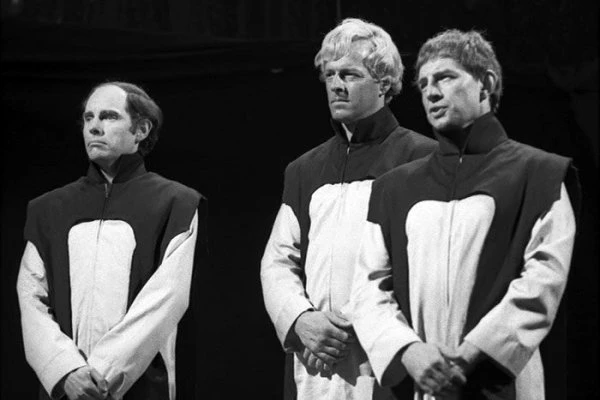
It's hard to overstate the importance of this twist in the context of Doctor Who as a whole. The only members of the Doctor's people we had previously met were his granddaughter at the very beginning of the series, and the Meddling Monk from the 1965 story The Time Meddler. His background had barely been sketched in, with the few hints we'd had being vague and contradictory. The serial moves ahead to a final climax where the Doctor, unable to return the thousands of soldiers home to their own times, has to call on the Time Lords for help. We learn he's been running from them since even before the series began, and he promptly takes off with his companions and tries to escape when the Time Lords are summoned. The Time Lords are quite frightening in this story, taking control of the TARDIS, holding their prisoners behind forcefields and threatening to dematerialise whole worlds. Both the War Lord and the Doctor (the War Chief having apparently not survived, not that we believe that) are put on trial by the Time Lords, with the War Lord removed from time completely – "It will be like you never existed."
The final episode focuses on this trial, with the Doctor on charges of theft of his TARDIS and interfering with the destinies of other worlds. He is tried by three Time Lords. Bernard Horsfall had appeared earlier in the season in The Mind Robber, and more notably would appear later opposite Tom Baker as the villainous Time Lord Chancellor Goth in The Deadly Assassin, while Clyde Pollitt would appear as the nameless Time Lord Chancellor, and there's no reason to think they aren't playing the same characters here. Trevor Martin, on the other hand, would star as the Doctor himself in the 1974 stage play Doctor Who and the Daleks in "Seven Keys to Doomsday," alongside Wendy Padbury (although not as Zoe).
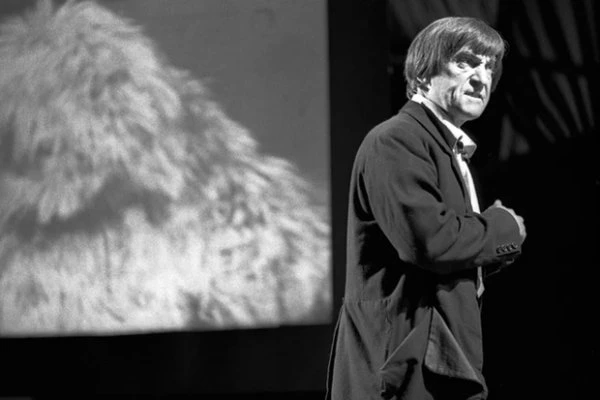
The trio of Time Lords are moved by the Doctor's plea that the universe needs defending from terrible forces (via a fan-pleasing montage of classic monsters such as Daleks, Cybermen and Abominable Snowmen). They decide that he must be punished but accepts that some worlds – particularly the Earth – need protection, and so they sentence the Doctor to exile in the twentieth century. As part of this sentence, they decree that the Doctor must change his appearance again, leading to a lovely sequence where the Doctor is told to choose his new face. Jon Pertwee had not been cast when the serial was being filmed, so a selection of drawings is presented to him, all of which he dismisses. (His protests – "too old, too fat, too thin, too young, too incredible-looking" – are a fair description of some of the faces he'll be sporting over the next fifty years.)
As the Doctor spirals away into the unknown, a whole era of the programme ends. When he reappeared, six months later and in full colour, he was the centre of an Earth-based military action series. Over time, the Doctor would begin exploring space and time again, but he would forever be one of the Time Lords, frequently answerable to them and tied to their ever-growing backstory. Even now, when the Doctor's backstory has been thrown into question by developments in Jodie Whittaker's tenure, the Time Lords remain at the centre of the series' mythology.
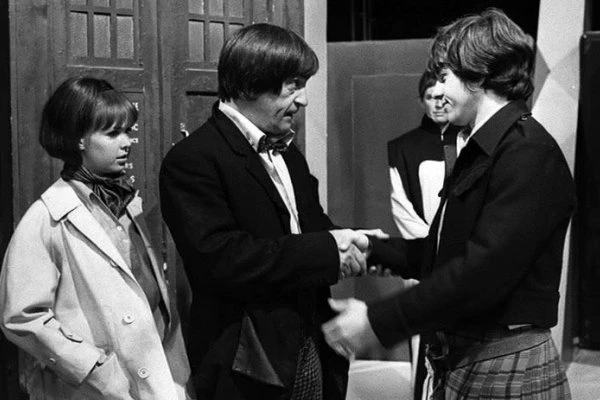
As Troughton left, so did Hines and Padbury. In fact, it was Hines who'd first decided to leave, and there was some brief consideration by both Troughton and Padbury to stay on for the seventh season. Ultimately, though, they all left together, with Jamie and Zoe being returned to their own times by the Time Lords. Hines would go on to star in Emmerdale Farm (latterly Emmerdale) in 1972, featuring in over 1300 episodes before leaving in 1994. Padbury had starring roles in the 1970s in the series Freewheelers and the horror film Blood on Satan's Claw. Her acting career slowed down after this, although she had a few roles through to the nineties, including a guest run on Emmerdale. Since then, though, she worked mainly as a theatrical agent until her retirement. Both Hines and Padbury appeared briefly in the 20th anniversary special The Five Doctors (as did Carstairs actor David Savile, briefly reunited with Troughton) and have taken up their roles as Jamie and Zoe for Big Finish's series of audio plays.
Troughton would continue to have a successful career as a character actor, notably starring in The Omen, Sinbad and the Eye of the Tiger and Frankenstein and the Monster of Hell on film and The Box of Delights on television among many, many credits, until his death in 1987. He returned to the role of the Doctor three times: The Three Doctors in 1972, The Five Doctors in 1983 and The Two Doctors in 1985. He remains a fan favourite and his Doctor is frequently cited as one of the most influential on the series, with Matt Smith in particular singing his praises.
The introduction of the Time Lords is what The War Games is best remembered for, and while it's a hugely important moment in the history of the series, the rest of the serial shouldn't be overlooked. After all, the Time Lords were created just so that someone could capture the Doctor and strand him on Earth so that the production team could save money after the expensive move to colour filming. The War Games, although a long old stretch, is up there with the very best of 1960s Doctor Who, an arresting collision of genres of the type that only Doctor Who can do.
Review by Daniel Tessier


